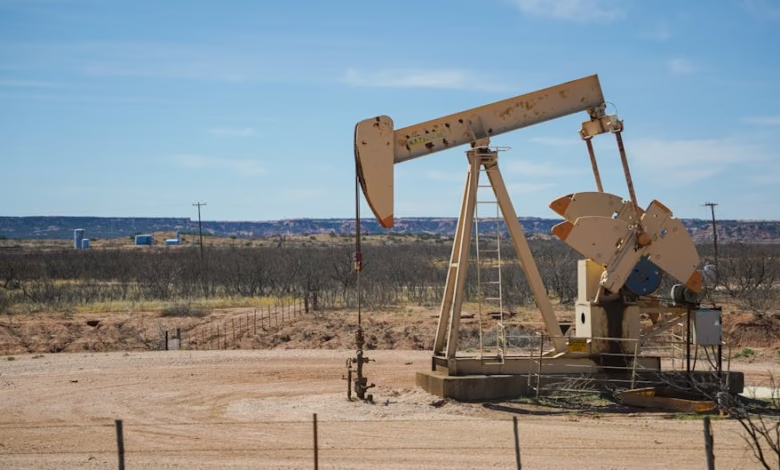Shale Oil Extraction and Its Impact on the Global Oil Trade: Navigating Fracking Technology and Environmental Challenges

In recent years, the extraction of shale oil has transformed the global oil industry, presenting new opportunities and challenges alike. Utilizing advanced fracking technology, producers have tapped into previously unreachable crude oil reserves, significantly altering the dynamics of the oil market. As countries grapple with fluctuating oil prices and market trends, understanding the implications of shale oil on the global oil trade becomes crucial. This article will explore the rise of shale oil, examining extraction techniques and the role of fracking in unlocking these valuable resources. Furthermore, we will delve into how shale oil influences oil prices and market trends, especially in relation to OPEC's strategies and the broader context of oil consumption. Finally, as the world faces critical decisions about energy security and the environmental impact of oil, we will assess the future of shale oil amidst evolving energy landscapes and the search for sustainable alternatives, including biofuels and other oil alternatives. Join us as we navigate the complex intersection of oil geopolitics, oil field services, and the imperative for responsible oil regulation in a world increasingly focused on balancing energy needs with environmental stewardship.
- 1. The Rise of Shale Oil: Understanding Extraction Techniques and Fracking Technology
- 2. Shale Oil and the Global Oil Trade: Impacts on Prices and Market Trends
- 3. Balancing Energy Security and Environmental Impact: The Future of Shale Oil in a Changing Landscape
1. The Rise of Shale Oil: Understanding Extraction Techniques and Fracking Technology
The rise of shale oil has transformed the global energy landscape, particularly with the advent of advanced extraction techniques such as fracking technology. Fracking, or hydraulic fracturing, involves injecting high-pressure fluid into shale formations to create fractures, allowing crude oil to flow more freely to the surface. This method has unlocked vast oil reserves previously deemed inaccessible, significantly impacting oil market trends and reshaping the dynamics of the oil trade.
As countries like the United States ramped up shale oil production, the global oil supply chains experienced a notable shift. This increase in supply contributed to fluctuations in oil prices, challenging the traditional influence of OPEC in controlling the market. With a surge in U.S. crude oil output, energy security has become a key concern for both consumers and producers, leading to discussions around oil price hedging strategies.
The implications of shale oil extraction extend beyond just economic factors; the environmental impact of oil extraction methods, including fracking, has sparked debates about sustainability and regulatory compliance. Critics argue that the environmental risks associated with shale oil extraction, such as groundwater contamination and increased greenhouse gas emissions, must be weighed against the benefits of energy independence and reduced reliance on foreign oil.
Furthermore, advancements in oil technologies have not only improved the efficiency of extraction but have also opened discussions about oil alternatives, such as biofuels and natural gas. As the oil industry continues to innovate, the focus on oil refining processes and downstream oil activities, including petrochemicals and oil storage, remains critical in ensuring a stable and secure energy future.
Ultimately, the rise of shale oil represents a complex interplay of economic, environmental, and geopolitical factors. As oil consumption patterns evolve, the industry must navigate the challenges of oil exploration, offshore drilling, and compliance with increasingly stringent regulations, all while maintaining focus on the broader goals of energy sustainability and security in the face of changing global oil market dynamics.
2. Shale Oil and the Global Oil Trade: Impacts on Prices and Market Trends
The emergence of shale oil has significantly influenced the global oil trade, reshaping oil market trends and impacting oil prices. As shale formations across North America, particularly in the United States, have become productive sources of crude oil through advanced fracking technologies, the dynamics of oil supply chains have evolved. Shale oil production has increased domestic oil reserves, reducing reliance on traditional offshore drilling and imports, and leading to a more competitive market.
One of the most notable effects of the shale oil boom has been on oil prices. The surge in U.S. shale production has contributed to a global oversupply of crude oil, which has, in turn, pressured prices downward. OPEC, the Organization of the Petroleum Exporting Countries, has had to adapt its strategies in response. The cartel has historically worked to stabilize oil prices by regulating supply; however, with the rise of shale oil, OPEC has faced challenges in maintaining its influence over the market.
Shale oil also intersects with global energy security. As countries invest in oil technologies and explore new oil alternatives, such as biofuels and oil sands, the competition for market share intensifies. This shift has implications for oil investing, as stakeholders reassess the viability of traditional oil fields and consider the long-term sustainability of their investments amid increasing environmental concerns.
Moreover, the environmental impact of oil extraction from shale formations cannot be overlooked. As awareness of climate change grows, there is a push for stricter oil regulation and compliance, compelling companies to adopt more sustainable practices. This movement towards sustainability is influencing oil consumption patterns and driving innovations in oil field services and petrochemicals.
In summary, the integration of shale oil into the global oil trade is reshaping market dynamics, affecting oil prices, and prompting shifts in geopolitical strategies. As the world navigates through these changes, the balance between energy security, environmental considerations, and economic interests will remain a focal point for policymakers and industry leaders alike.
3. Balancing Energy Security and Environmental Impact: The Future of Shale Oil in a Changing Landscape
The future of shale oil in a changing landscape presents a complex interplay between energy security and environmental impact. As the global demand for crude oil remains robust, driven by factors such as industrial growth and increased oil consumption, the need for reliable energy sources becomes paramount. Shale oil extraction, primarily facilitated by fracking technology, has emerged as a significant player in the oil market, contributing to the U.S. becoming one of the leading producers of oil and natural gas.
However, the environmental impact of oil extraction processes cannot be overlooked. Concerns about water usage, potential groundwater contamination, and the emission of greenhouse gases have sparked debates about the sustainability of shale oil. As oil investors and policymakers navigate these challenges, there is an urgent need to balance energy security with environmental stewardship. The rise of biofuels and other oil alternatives presents opportunities to diversify energy portfolios while mitigating the adverse effects associated with traditional oil extraction methods.
Furthermore, the dynamics of oil geopolitics and the influence of organizations like OPEC on oil prices add another layer of complexity. Fluctuations in oil prices can significantly affect the viability of shale oil projects, impacting oil refining and transportation strategies within the global oil trade. As countries strive to strengthen their oil supply chains, the focus on oil storage and compliance with environmental regulations becomes increasingly critical.
In this context, advancements in oil technologies and oil field services are essential for minimizing the environmental footprint of shale oil extraction. Enhanced oil recovery techniques and better regulatory frameworks can help ensure that shale oil remains a viable energy source without compromising ecological integrity. The future of shale oil will depend on the ability to adapt to changing market trends while addressing the pressing need for sustainability in the oil industry. As we look ahead, it will be vital for stakeholders to engage in oil price hedging strategies and explore innovative solutions that align energy security with a commitment to reducing the environmental impact of oil exploration and extraction.
In conclusion, the extraction of shale oil through fracking technology has significantly reshaped the landscape of the global oil trade. As we explored, the rise of shale oil not only influences oil market trends and crude oil prices but also poses unique challenges related to environmental impact and energy security. The delicate balance between harnessing shale oil's potential and addressing its ecological ramifications is critical for the future of oil consumption and the ongoing evolution of oil technologies.
As countries navigate the complexities of oil geopolitics, the role of OPEC and the emergence of oil alternatives, including biofuels, will play a pivotal part in shaping the future of energy. The need for effective oil regulation and compliance measures will be essential to ensure sustainable practices in oil field services and oil transportation.
Ultimately, as we look toward a future of fluctuating oil reserves and evolving energy demands, oil investing strategies must adapt to the realities of this dynamic sector. By understanding the intricate connections between shale oil, natural gas, and the broader oil supply chains, stakeholders can better prepare for the challenges and opportunities that lie ahead in the increasingly interconnected world of energy.





